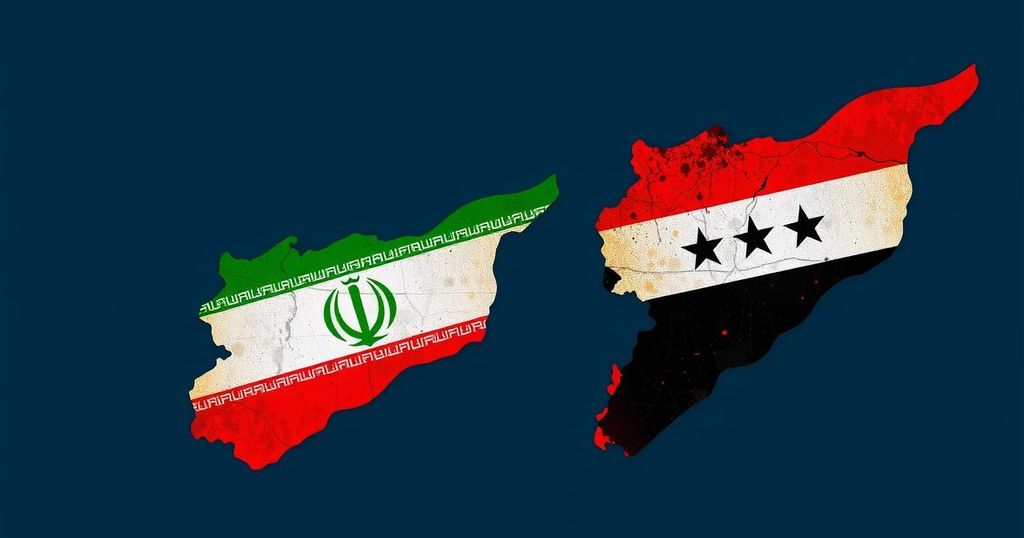Resurgent Rebels Complicate Syria’s Ties with Iran Amid Israeli Strikes
Recent Israeli airstrikes aimed at diminishing President Bashar al-Assad’s ties with Iran faced setbacks as resurgent rebel forces captured Aleppo, jeopardizing his control. Despite efforts from the U.S. and Gulf nations to weaken this alliance, analysts believe Assad will increasingly rely on Iran for regime survival, complicating the regional power struggle over Syrian territory.
Despite efforts by the United States and Gulf nations to weaken President Bashar al-Assad’s alliance with Iran, recent developments in Syria have diminished the likelihood of a strategic realignment. Following intensified Israeli airstrikes, which were aimed at destabilizing Iran’s influence, the emergence of resurgent rebel forces has complicated these dynamics. These rebels, taking advantage of political and military pressures on Assad, notably captured Aleppo, thereby threatening his control over northwest Syria. As a result, analysts suggest that Assad will likely cling more tightly to Iran and its allies, who remain pivotal for his regime’s survival amid Syria’s ongoing civil conflict.
The strategic significance of Syria in relation to Iran’s corridor to Hezbollah in Lebanon underscores the region’s power struggle. Israel is keenly aware that disrupting this supply line is essential for its security interests. Initially, following Israel’s military achievements against Hezbollah and Hamas, it was believed that Iran might reconsider its confrontational stance. Nevertheless, the rise of rebel forces in Syria has shifted the balance, compelling Assad not only to rely on Iran more heavily but also to reassess the possibility of stabilizing his regime without its support.
The article discusses the geopolitical tensions involving Syria, Iran, and Israel, particularly focusing on President Bashar al-Assad’s precarious situation amid ongoing military aggression and rebel resurgence. As Israel conducts airstrikes in Syria aimed at diminishing Iranian influence, the anticipated weakening of Assad’s alliance with Tehran is threatened by the unexpected re-emergence of rebel forces. This dynamic highlights the broader regional implications of power struggles and military alignments, particularly concerning Iran’s support for Hezbollah and the implications for Israel’s security strategy.
The recent developments in Syria illustrate a complex and evolving geopolitical landscape. While there was potential for the weakening of Assad’s ties to Iran amidst Israeli military actions, the unexpected strength of rebel forces has created a scenario in which Assad is more likely to fortify his alliance with Tehran. The ramifications of this situation not only affect Syrian stability but also influence regional security dynamics involving Israel and Iran.
Original Source: www.nytimes.com




Post Comment